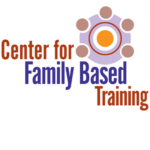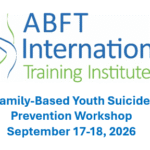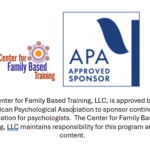TRAINING DATES:
September 17-18, 2026 (2-half days)
TIME:
10:30am-2:15pm Eastern Time
How do we respond when a teenager discloses suicidal thoughts in therapy, whether expected or out of the blue? When is it time to involve caregivers, and how do we do so in a way that supports both the adolescent and the family system? Should we hospitalize, or can we safely support them at home?
These are some of the most difficult, and most critical, decisions clinicians face. This two-part, interactive webinar series offers practical, evidence-based tools to help you navigate these moments with confidence, clarity, and compassion.
In the first session, you’ll learn how to conduct a comprehensive, family-based suicide risk assessment using state-of-the-art procedures and tools. In the second, you’ll discover how to transform a safety plan into a powerful family intervention, one that empowers caregivers and teens alike to manage risk collaboratively.
Drawing from the principles of Attachment-Based Family Therapy (ABFT), an empirically supported treatment for adolescent depression and suicidality, we will also explore strategies to reduce family resistance, strengthen engagement, and build a therapeutic alliance that supports healing.
Through a mix of lecture, clinical demonstrations, experiential exercises, and role-play, this live interactive synchronous distance workshop will equip you with the skills to make sound clinical decisions and ethically grounded interventions in the face of youth suicide risk.
***If you would like to be a part of this event but you are unable to attend live, you can register and receive 14 days of access to the event recordings to watch on your own. Continuing education credits are not available for the recording.***
This is an intermediate level course. The target audience for this training includes mental health staff responsible for managing high risk clinical assessments and treatment of suicidal youth. This might include psychiatrists, psychologists, psychotherapists, social workers, family therapists and mental health counselors. Other professionals who work with youth might also gain skills from this training.
This is a live, interactive synchronous distance learning activity conducted in real time, allowing for simultaneous participation of participants and instructors from different locations.
- List the important aspects of a risk assessment.
- Explain importance of a family generated safety plan.
- Explain the barriers to engaging families in treatment.
- Describe the decision making process of what level of care is needed to match the level of risk.
- Describe strategies for dealing with family resistance to treatment.
View approximate schedule for the training here: FB YSP 2-Part Webinar Schedule
Registration Deadline: September 16, 2026 5pm ET
Regular Registration: $135 per person
** Group Discount Available for Groups of 3 or more.
This live training will take place over Zoom. You will be emailed the Zoom link and relevant handouts a week before the first webinar will occur.
We require cameras on during the training. The webinar will be recorded and all participants will have access to the recording for 14 days after the event.
Please let us know if you have any disability or other special needs so that we can ensure that your needs will be fully met (info@abftinternational.com or 267-270-2245). We will attempt to meet needs presented at the last minute, but 2 weeks notice will be appreciated

Suzanne Levy, Ph.D.
Suzanne Levy, Ph.D., is an internationally renowned licensed clinical psychologist and co-developer of ABFT. Previously she was the Executive Director of Strategic Initiatives and Training of the ABFT Training Program at Drexel University’s College of Nursing and Health Professions. Since 2007, Dr. Levy has been conducting ABFT training workshops and supervision for therapists nationally and internationally. She has presented regionally, nationally, and internationally on ABFT, emotion coaching, child and adolescent therapies, resilience, adolescent depression, adolescent development, and adolescent substance use.

Guy Diamond, Ph.D.
Guy Diamond, Ph.D., is Professor Emeritus at the University of Pennsylvania School of Medicine and formerly was Associate Professor at Drexel University in the College of Nursing and Health Professions. His primary work has been in the area of youth suicide prevention and treatment research. On the prevention side, he has created a program focused on training, screening and triage to be implemented in non-behavioral health settings. On the treatment side, he has focused on the development and testing of attachment-based family therapy (ABFT), especially for teens struggling with depression and suicide. ABFT has now been applied to children and young adults, LGBTQ youth and adults, and adopted in clinics all over the world where it is used as a transdiagnostic approach to patient mental health and ruptures in family attachment.
*Additional instructors may be added.
 Center for Family Based Training, LLC is Co-sponsoring this event.
Center for Family Based Training, LLC is Co-sponsoring this event.
This program is being offered for the following contact hours of continuing education: 7 hours
 The Center for Family Based Training, LLC, is approved by the American Psychological Association to sponsor continuing education for psychologists. The Center for Family Based Training, LLC maintains responsibility for this program and its content.
The Center for Family Based Training, LLC, is approved by the American Psychological Association to sponsor continuing education for psychologists. The Center for Family Based Training, LLC maintains responsibility for this program and its content.
Pending Approval:
![]()
Family-Based Youth Suicide Prevention Workshop [course number], is approved by the Association of Social Work Boards (ASWB) Approved Continuing Education credit. ACE course approval period [dates]. Social workers completing this course receive 7 synchronous distance continuing education credits.
To receive continuing education credits, participants must attend the entire course and complete a course evaluation.
Certificates will be provided upon completion of the workshop and evaluation survey. Certificates are sent via email within 1 week of the workshop.
Continuing education credits are not available for watching the recording.
For any grievances or concerns relating to this co-sponsored workshop, please contact wayne@familybasedtraining.com from the Center for Family Based Training (CFBT). The CFBT will follow their grievance procedures and work together with ABFT to address any concerns. A response is typically provided within 15 days.
A $50 administrative fee will be charged for all refunds. Refund requests will be honored up to four business days before the start of the course and must be confirmed in writing. If cancellation occurs within three business days prior to the course, a refund will not be available. However, the full amount of tuition may be applied to a future course (i.e. you may transfer your registration to a future introductory workshop).
A $50 administrative fee will be charged for any returned checks due to insufficient funds.


